
'Errabus' comes amid ordinary expectations and wins our hearts. Revealing Dasari Narayana Rao's knack for telling a story with a palpable melancholic touch, the film comes with an old-fashioned flavour that is welcome. There are snatches of improperly fit scenes in the second half but they eventually give way to a good climax.
Rajesh (Vishnu Manchu) is a hardworking software profession with a burning desire to settle down in America. His sweetheart Raji (Catherine Tresa) supports him in his endeavor and just as everything seems to be going fine in his life, his grandfather (Dasari), a childlike oldie with his bumbling ways, enters his life. As much as Tathayya goes about creating embarrassment to him, the loving and caring grandson continues to reciprocate his love for him. However, will there come a day when the grandpa can do unintended harm and ruin Rajesh's dreams? That forms the crux of the story.
In a long time, 'Errabus' is a no-frills drama that is a family entertainer. Dasari marshals his oeuvre for his not-so-demanding story. He as well updates himself to deliver a technically sound fare. If there are scenes where we see the female lead behave like the selfish and obstinate daughter-in-law/daughter of Dasari's yesteryear dramas, there is also an engaging light-veined humour here and there. The scene where Dasari asks for a glass of butter milk from a writer of repute (played by Brahmanandam) before picking up a one-sided argument is good. Tathayya selecting a "Savitri-like woman" while simultaneously offending the heroine by calling her 'musalamma' is Dasari-mark comedy. He pens lines like 'Vadipoyina mokka ku neellu vesi penchavu..' to a jovial effect.
Dasari as the old man who knows no cunning is surely the film's biggest asset. The role must have been a cakewalk for him, as much as penning the scenes that are rooted in the traditional as well as targeted at all sections of audiences. There is no attempt to be preachy towards the youngsters, except that irresistible temptation of many a filmmaker to glorify the Indian village while exposing the inadequacies of urban life.
The veteran director, respected for his vast repertoire of films that boast of a thematic variety and narrational depth, should have avoided cliched parodies. As if old numbers like 'Nee kallu chebutunnayi..' are not enough, Dasari merrily infuses the comedy scenes with songs like 'Saar vostara..', 'Gunde jaari gallanthayyinde..', 'Lungi dance..', and even 'Gannam style...' Brahmanandam's crow comedy is an all-time low both in terms of the concept and the CG work. Watching Krishnudu in an old woman's get-up is hardly interesting. Shankar Melkote in a cameo is boring.
Dasari has deftly avoided hackneyed songs for good. The songs are interwoven into the narrative and although Chakri's music may not have been rendered effective in a case or two, the overall impression is that the songs add value to the narration. The sentimental number 'Aakashana pudathadu oka sooryudu..' that comes thrice is certainly the best one.
The second half occasionally descends into banal scenes that spread themselves thin as Tathayya reaches out to Tom, Dick and Harry, being the innocent villager who allegedly is better cultured. The narration is bad at times because you see the heroine giving a serious-minded ultimatum to the hero in one intense scene, and in the next scene, she comes saying 'Ooyee' with a pamper-me-if-you-can expression on her face.
Vishnu Manchu does a fine job and sparkles by sharing a nice chemistry with Dasari. Opposite Catherine Tresa, he looks the better half of a good pair. Complementing Dasari's measured performance, he does his part well. Catherine gets to play only a better glam-doll role.
Technically, Chakri's music stands out. The cinematography and editing are fine.
Verdict: A family entertainer that is surely in the old Dasari mould even while catering to the tastes of the new generation.
Rating: 3/5
Rating: 0 / 5.0
Showcase your talent to millions!!
తెలుగు Movie Reviews
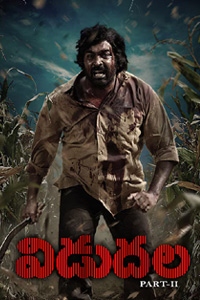 Vidudala Part-2
Vidudala Part-2
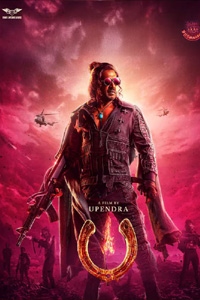 UI
UI
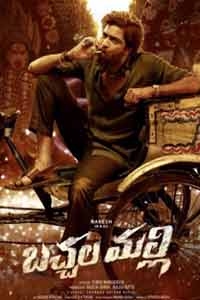 Bachhala Malli
Bachhala Malli
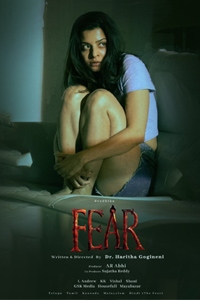 Fear
Fear
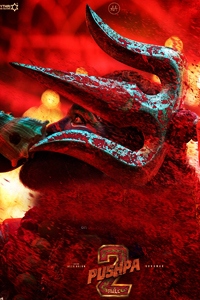 Pushpa 2: The Rule
Pushpa 2: The Rule
 Devaki Nandana Vasudeva
Devaki Nandana Vasudeva



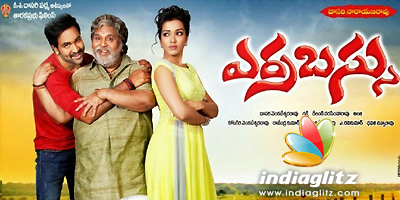
Comments